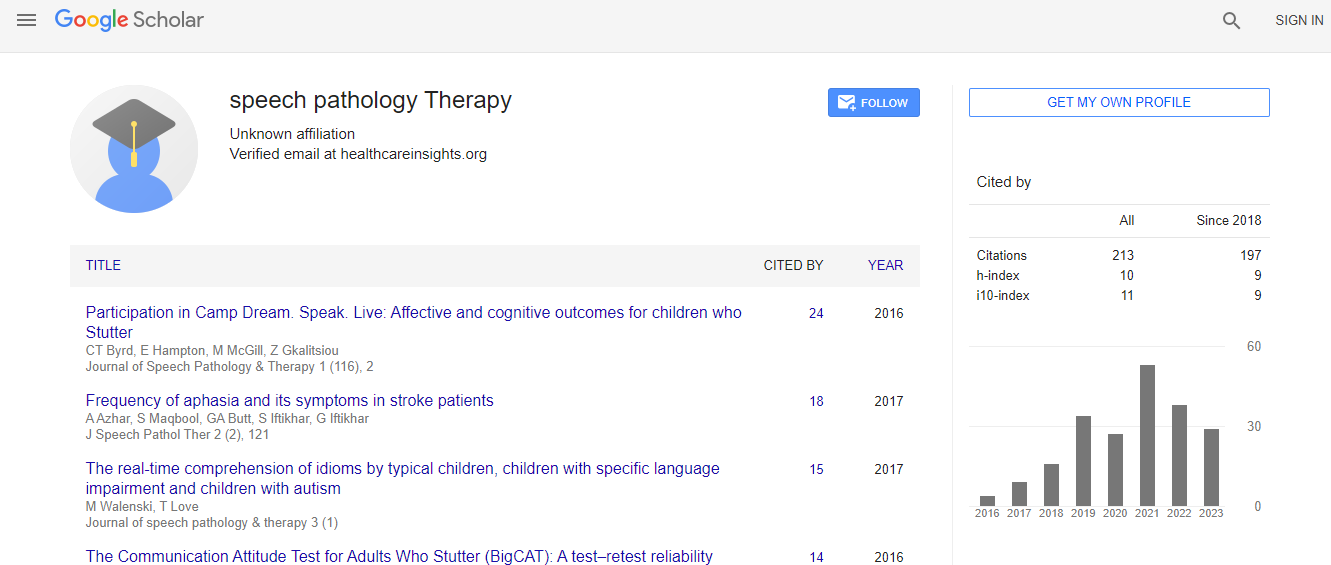Research Article
How Do Patients with Cognitive Impairment Communicate During Discharge Meetings? Evaluation of Participation Using Talking Mats
Liv Thalén1,2*, Ove Almkvist3,4 and Ing-Mari Tallberg1,21Department of Speech and Language Pathology, Karolinska University Hospital, Stockholm, Sweden
2Department of Clinical Science, Intervention and Technology, Karolinska Institutet, Sweden
3Department of Neurobiology, Care Sciences and Society Karolinska Institutet, Sweden
4Department of Psychology, University of Stockholm, Sweden
- *Corresponding Author:
- Liv Thalén
Karolinska University Hospital
Barngatan 69, Stockholm, Sweden
Tel: +46 70 99 811 81
Fax: +46 8 58 58 15 05
E-mail: liv.thalen@ki.se
Received date: February 04, 2016; Accepted date: March 18, 2016; Published date: March 26, 2016
Citation: Thalén L, Almkvist O, Tallberg ML (2016) How Do Patients with Cognitive Impairment Communicate During Discharge Meetings? Evaluation of Participation Using Talking Mats. J Speech Pathol Ther 1:106. doi: 10.4172/2472-5005.1000106
Copyright: © 2016 Thalen L, et al. This is an open-access article distributed under the terms of the Creative Commons Attribution License, which permits unrestricted use, distribution, and reproduction in any medium, provided the original author and source are credited.
Abstract
Objective: Individuals with dementia experience a declining capacity for communication, negatively affecting their ability to participate in discharge meetings. Communication problems might be obvious. Nevertheless patients often lack a structuralized support. The aim of this study was to investigate if communication could be facilitated by preparing patients for their discharge meetings using Talking Mats (TM), a visual communication-supporting device.
Methods: A pilot study was conducted, in which twenty patients participated, randomized to use TM prior their discharge meeting (Talking Mats Group, TMG) or to follow the ward’s usual procedure (Control Group, CG). Persons attending discharge meetings (patients, close acquaintances, nurses, and social care workers) at a geriatric ward rated on Visual analogue scale how well they perceived the patient participated in communication. They also rated to which extent utilizing TM had helped them.
Results: Our main finding was an interaction effect regarding how the four groups of persons attending the meeting (patients, close acquaintances, nurses, and social care workers) rated the three different statements regarding communication and participation; knowing the patient before the meeting affected the ratings of the patient’s communicative participation. A majority using TM rated that it had been beneficial during the discharge meetings. Comparison between groups yielded the contradicting result that in CG communication was rated as more well-functioning than in TMG.
Conclusion: Understanding each other is not a given in discharge meetings, especially when a patient has cognitive impairment, but the use of TM was rated as a communication facilitator by the persons attending. Having knowledge of a patient affected ratings of communication, and we conclude it is desirable to have the person utilizing the mat with the patient also attending the discharge meeting.
 Spanish
Spanish  Chinese
Chinese  Russian
Russian  German
German  French
French  Japanese
Japanese  Portuguese
Portuguese  Hindi
Hindi 